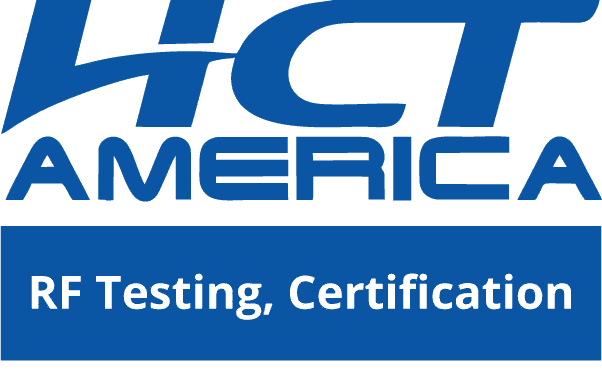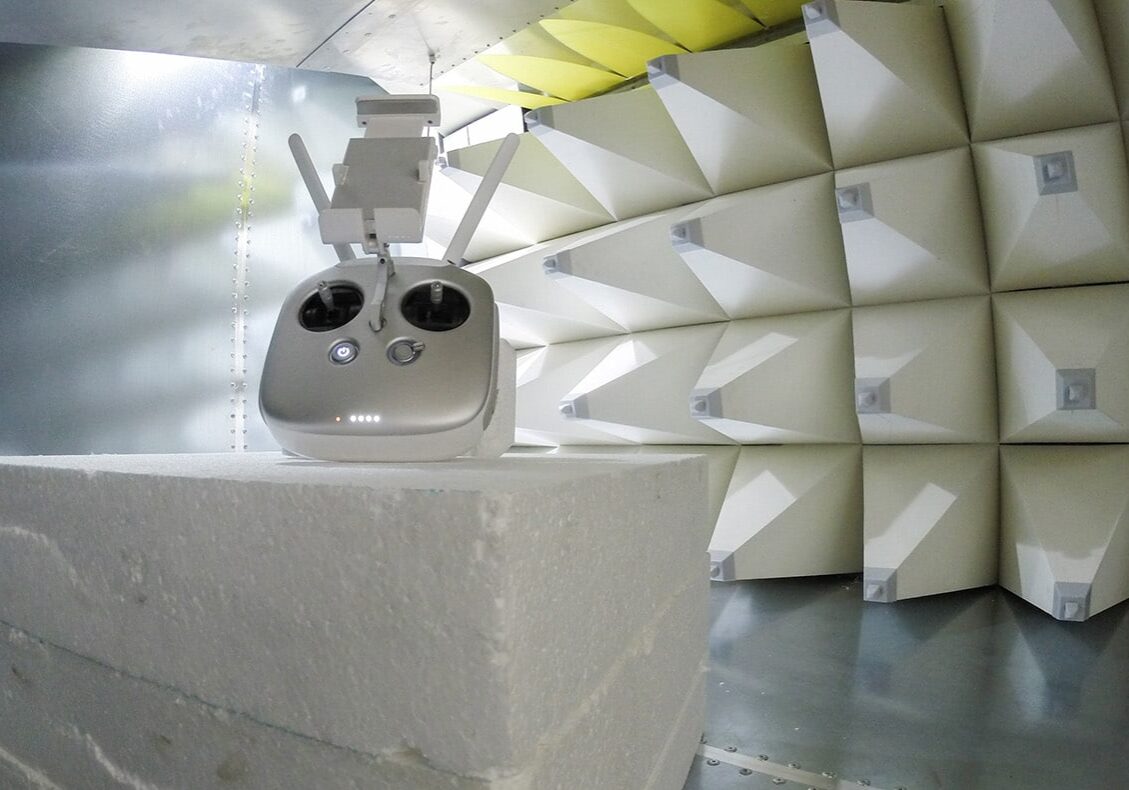Wireless & RF Testing
Wireless and Radio Frequency Testing
//
HCT America Engineering has extensive testing experience and a thorough knowledge of all appropriate standards and procedures for testing and evaluating radio frequency devices, including unlicensed and licensed radio equipment subject to FCC CFR 47, Part 2, ANSI C63.4, FCC MP-5, FCC OET Bulletin 63 supplement C, etc. We stay current with the latest FCC interpretations and FCC rule changes.
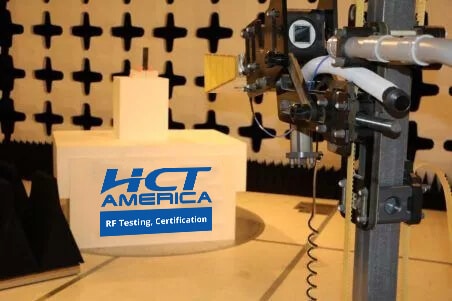
| FCC Part 15.247 | Bluetooth module, Direct Sequence and Frequency Hopping Spread Spectrum devices (DSSS and FHSS) |
| FCC Part 15.250 | Radar |
| FCC Part 15.245 | Field Disturbance Sensors |
| FCC Part 22, Part 24 Part 15.247, Part 90 |
Amplifiers: booster, repeater, and extender |
| FCC Part 22, Part 24 Part 27 |
PCS and cellular phones from single band/single mode to dual band/tri-mode with AMPS, CDMA, TDMA, and GSM modulation |
| FCC Part 22, Part 24 Part 90 |
2-way VHF/UHF/SMR Push-To-Talk (PTT) radios including two-level FM modulation and four-level FM per Project 25 (C4FM); Trunked mode and QAM digital modulation |
| FCC Part 15.121 | Scanning receiver |
| FCC Part 15.231 | Remote Control and Security Systems, etc. |
| FCC Part 15.255 | 60 GHz point-to-point telecommunication radio links |
| FCC Subpart E | Unlicensed National Information Infrastructure Devices |
| FCC Subpart F | Ultra-Wideband Operation |
Korea RRA and Certification
//
HCT America is a Certified Acceptance Body (CAB) for Korea Radio Standards. All testing is performed locally in our new San Jose, CA facilities. Experienced engineering team tests to KN32 / KN35 EMC standards and obtains MSIP approvals. Our Korea bilingual Certification Project Managers oversee all testing to all Korea RRA Radio standards and assist the client in expediting certification approvals.
Radio Equipment Directive (RED)
//
HCT America performs product testing and regulatory approval submissions for various radio equipment under Annex III and Annex IV of the R&TTE directive 2014/30/EU. We have a thorough working knowledge of ETSI harmonized standards. The following is a sample of the types of testing we perform, and it is not all-inclusive:
Short Range Devices (SRDs)
Technical characteristics and test methods for Short Range radio Device and equipment
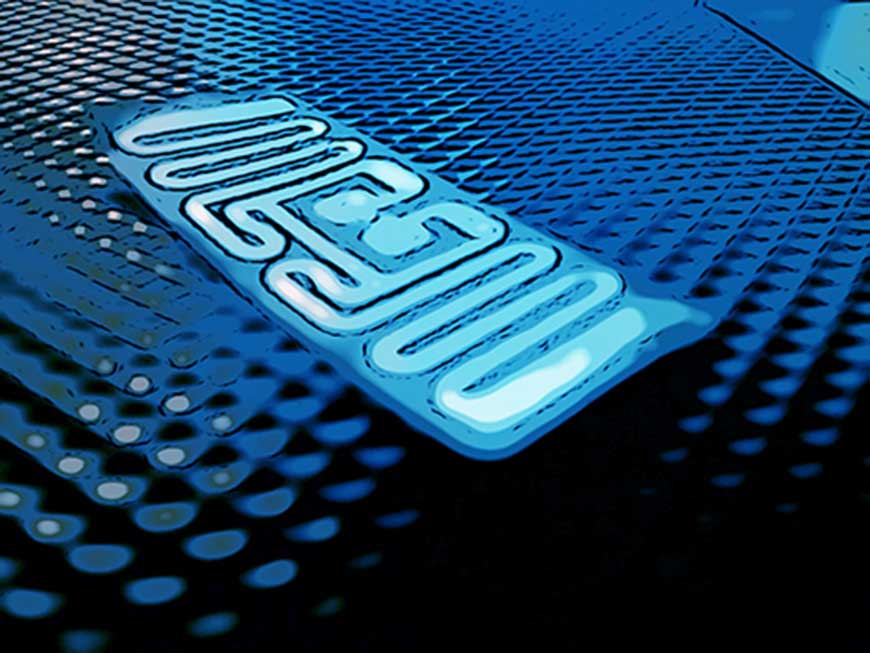
| EN 300 330-2 | Radio equipment in the frequency range 9 kHz to 25 MHz and inductive loop systems in the frequency range 9 kHz to 30 MHz |
| EN 300 440 | Radio Equipment and Systems (RES) |
| EN 301 489-3 | Electromagnetic compatibility and Radio spectrum Matters (ERM); Electro-Magnetic Compatibility (EMC) standard for radio equipment and services; Part 3: Specific conditions for Short-Range Devices (SRD) operating on frequencies between 9 kHz and 40 GHz |
Radio Local Area Network (LAN & HIPERLAN)
//
Technical characteristics and test methods for wireless LAN and HIPERLAN radio equipment
| EN 300 328-2 | Wideband Transmission systems; Data transmission equipment operating in the 2,4 GHz ISM band and using spread spectrum modulation techniques |
| EN 301 489-17 | Electro-Magnetic compatibility and Radio spectrum Matters (ERM); Electro-Magnetic Compatibility (EMC) standard for radio equipment and services; Part 17: Specific conditions for Wideband data and HIPERLAN equipment |
| EN 300 826 | Electromagnetic compatibility and Radio spectrum Matters (ERM); Electro-Magnetic Compatibility (EMC) standard for 2,4 GHz wideband transmission systems and High-Performance Radio Local Area Network (HIPERLAN) Equipment |
Innovation, Science, and Economic Development Canada
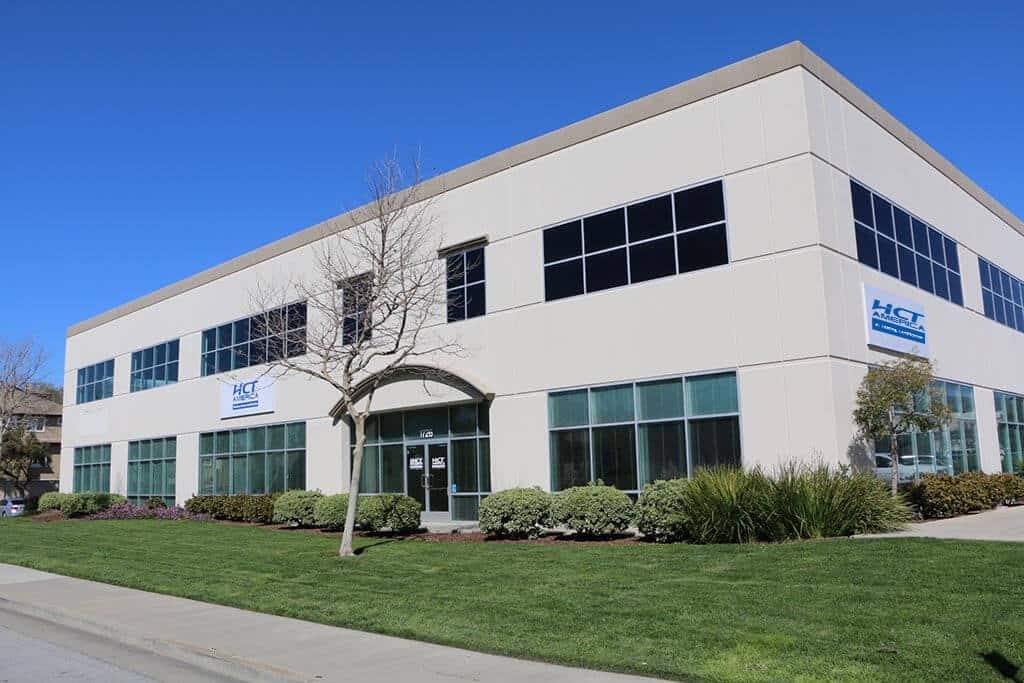
HCT America performs product testing and regulatory approval submissions for various radio equipment based on ISED standards. We have a thorough working knowledge of all Radio Standard Specifications (RSS). The following is a sample of the types of RSS testing we perform:
| RSS-Gen | General Requirements and Information for the Certification of Radio Apparatus |
| RSS-102 | Radio Frequency (RF) Exposure Compliance of Radiocommunication Apparatus (All Frequency Bands) |
| RSS-112 | Land Mobile and Fixed Equipment Operating in the Band 1670-1675 MHz |
| RSS-118 | Land and Subscriber Stations: Voice, Data and Tone Modulated, Angle Modulation Radiotelephone Transmitters and Receivers Operating in the Cellular Mobile Bands 824-849 MHz and 869-894 MHz |
| RSS-119 | Land Mobile and Fixed Radio Transmitters and Receivers Operating in the Frequency Range 27.41-960 MHz |
| RSS-123 | Licensed Low-Power Radio Apparatus |
| RSS-129 | 800 MHz Dual-Mode CDMA Cellular Telephones |
| RSS-132 | Cellular Telephones Employing New Technologies Operating in the Bands 824-849 MHz and 869-894 MHz |
| RSS-133 | 2 GHz Personal Communications Services |
| RSS-139 | Advanced Wireless Services Equipment Operating in the Bands 1710-1755 MHz and 2110-2155 MHz |
| RSS-210 | License-exempt Radio Apparatus (All Frequency Bands), Category I Equipment |
| RSS-287 | Emergency Position Indicating Radio Beacons (EPIRB), Emergency Locator Transmitters (ELT), Personal Locator Beacons (PLB), and Maritime Survivor Locator Devices (MSLD) |
| RSS-310 | License-exempt Radio Apparatus (All Frequency Bands), Category II Equipment |
Frequently Asked Questions
Al intentional radiator devices are regulated by the Code of Federal Regulations, Title 47, Part 11 through Part 101. Radio Devices need to undergo a certification process and demonstrate compliance with the FCC rules before receiving a permission to be sold in the United States.
Having a good idea of RF test labs standards is also imperative. If you want to ensure your product is ready to go to markets around the world, a high standard of testing must be carried out to ensure that it is truly safe and compliant. If an RF lab has a good reputation, it’s a good sign. It could be an idea to look at third-party review sites, as well as customer testimonials.
Radio frequency testing, otherwise known as RF testing, is required to ensure compliance of the wireless equipment that you’ve produced with international regulatory requirements. These requirements will allow your radio and telecommunications equipment to be sold in various markets around the world and it’s also a legal requirement to ensure that your wireless technology is safe to use. Without the right certification, your products will not be allowed on the market.
By ignoring RF testing, you pose the following risks to you and your company:
3 months imprisonment
A hefty monetary fine
Recalls on all of your products
Replacement of said products
Possible suspension of sales
